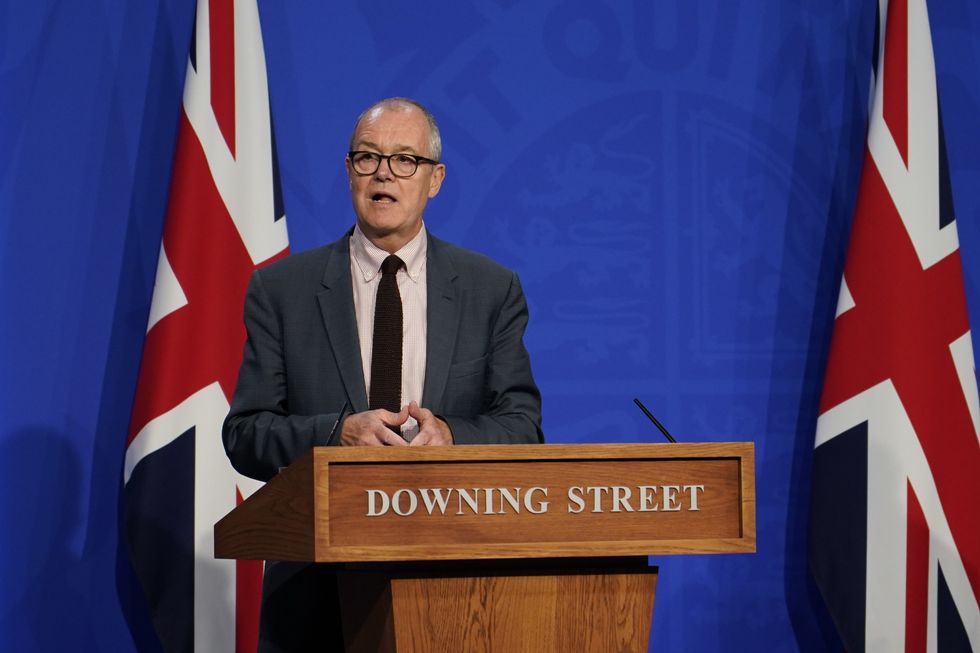Covid: Government must 'go early' with restrictions if cases rise, says Vallance

Chief scientific adviser Sir Patrick Vallance, during a media briefing in Downing Street, London, on coronavirus (Covid-19).
Alberto Pezzali

Sir Patrick Vallance said the UK is at a “pivot point” in the pandemic and if the situation worsens quickly then ministers must “go early”.
The chief scientific adviser told the Downing Street press conference: “If you look across the Channel, countries where you’ve got similar levels of immunity and some higher degrees of restrictions, what you can see is cases are going down.
“So, you can see we’re sort of at that pivot point where things are flattish at the moment.
“If they go up quickly then, as I’ve said, you’ve got to go early in terms of getting on top of it – you can’t wait until it’s late because you’ve got to do more.”
Sir Patrick said the best way to avoid future Covid-19 restrictions is to try and persuade as many people as possible who are still unvaccinated to get a jab.
The chief scientific adviser said there are currently five million people who are eligible for a vaccine who have yet to take them.
He told the Downing Street conference: “Getting that immunity up means that the barrier against (Covid-19) rises is that much greater.
“If you think about where we are now with infection rates, and the openness that we’ve currently got, if you tried to do this six months ago, the number of cases and decimalisation would be through the roof.
“The immunity is really important to keep this down and allows lighter measures to be put in place to keep it under control.”
Sir Patrick said the number of hospital admissions would be the most vital marker of whether things were going in the wrong direction, particularly the relationship between the number of cases and the number of admissions.